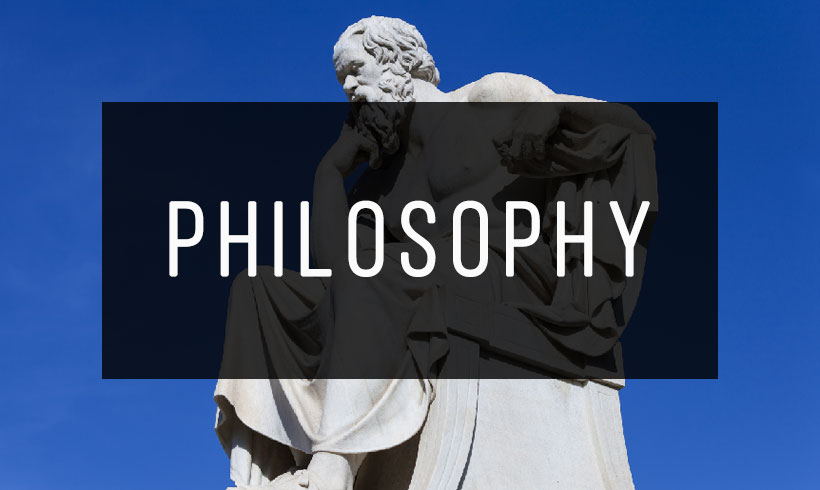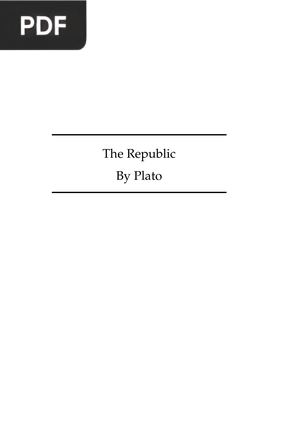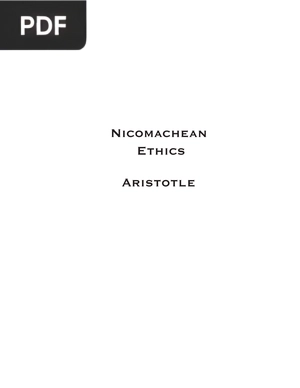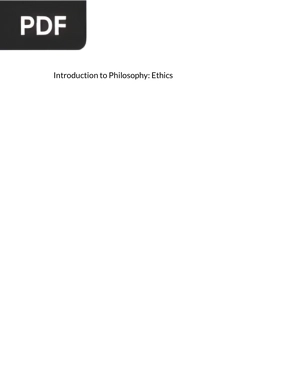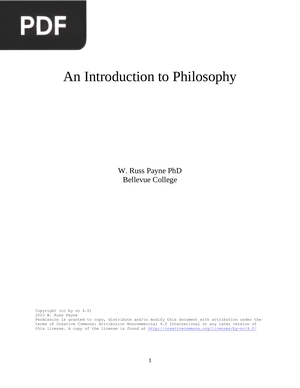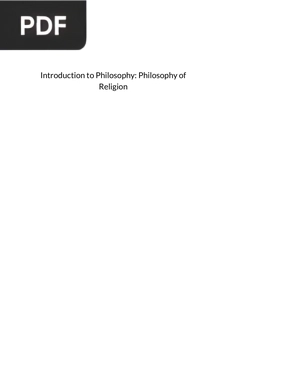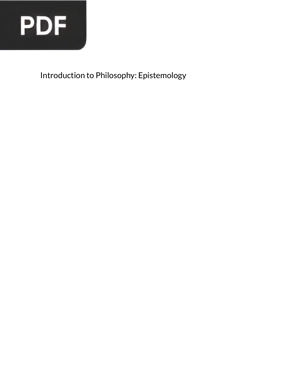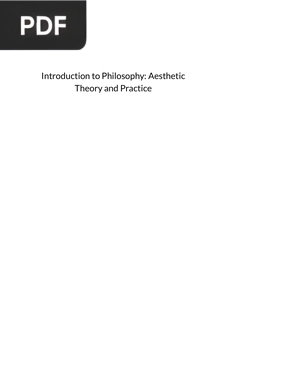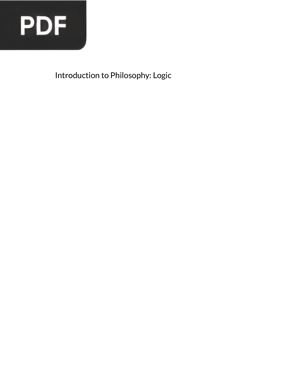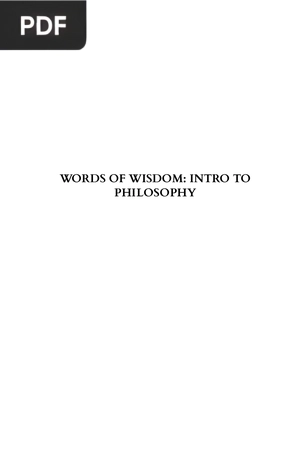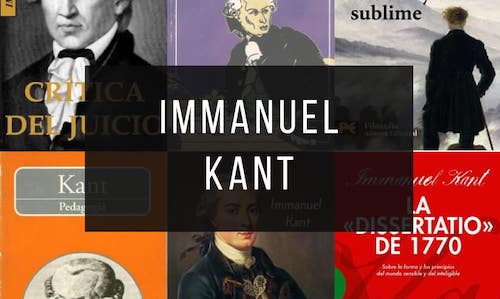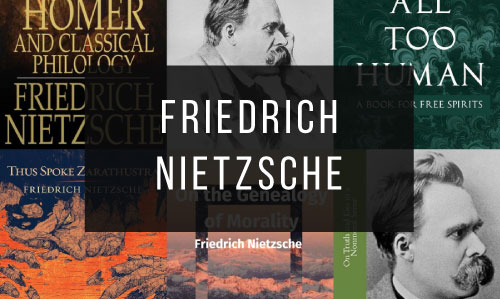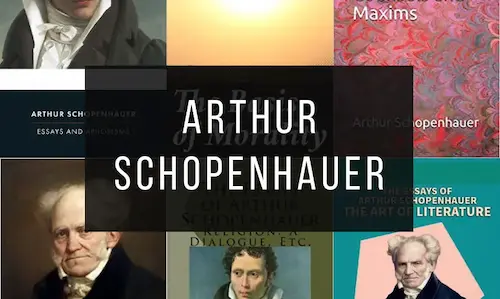Are you passionate about philosophy? You’re in the perfect place! Here, you can find and download the best philosophy books for free. We have gathered a wide selection of masterpieces to nourish your mind and spirit.
Philosophy is the art of thinking, questioning, and exploring life’s big questions. Philosophy books allow you to delve into the thoughts of history’s greatest thinkers.
Browse our extensive catalog of philosophy books for all tastes and levels. From the classics of ancient Greece to contemporary thinkers, you’ll find a variety of texts that will help you expand your knowledge and enrich your life.
Don’t wait any longer to start your journey through the fascinating world of philosophy. Join us and download the philosophy books you’ve always wanted to read for free.
Start today to transform your worldview and enrich your life!
Outstanding Philosophy Books
#1 Republic
Extension: PDF | 309 pages
The Republic by Plato is a philosophical dialogue involving Socrates discussing justice, the nature of the soul, and the ideal state.
#2 Nicomachean Ethics
Extension: PDF | 182 pages
Nicomachean Ethics by Aristotle is a philosophical exploration of the concept of the highest good and the role of ethics in achieving human happiness.
#3 Introduction to Philosophy: Ethics
Extension: PDF | 118 pages
Introduction to Philosophy: Ethics, is an open-access textbook series introducing key ethical concepts, theories, and discussions in philosophy, offering a comprehensive resource for introductory philosophy courses.
#4 An Introduction to Philosophy
Extension: PDF | 160 pages
An Introduction to Philosophy is an overview of philosophy, covering topics from critical thinking to ethics, emphasizing the importance of philosophy in understanding ourselves and the world.
#5 Introduction to Philosophy: Philosophy of Mind
Extension: PDF | 99 pages
Introduction to Philosophy: Philosophy of Mind is an open textbook exploring key philosophical concepts like substance dualism and consciousness.
#6 Introduction to Philosophy: Philosophy of Religion
Extension: PDF | 123 pages
Introduction to Philosophy: Philosophy of Religion is an open textbook exploring the intertwining of philosophy and religion, providing theoretical arguments, debunking beliefs, and delving into monotheism.
#7 Introduction to Philosophy: Epistemology
Extension: PDF | 195 pages
Introduction to Philosophy: Epistemology is an open textbook that delves into traditional topics like the analysis of knowledge and skepticism, while also exploring expanded areas such as epistemic value, social epistemology, and feminist epistemologies.
#8 Introduction to Philosophy: Aesthetic Theory and Practice
Extension: PDF | 231 pages
Introduction to Philosophy: Aesthetic Theory and Practice is an open textbook covering various aspects of aesthetics, art, nature, and cultural engagement, relevant for philosophy enthusiasts exploring the intersection of aesthetics and philosophical inquiry.
#9 Introduction to Philosophy: Logic
Extension: PDF | 103 pages
Introduction to Philosophy: Logic, this book delves into areas such as what logic is, evaluating arguments, formal logic in philosophy, informal fallacies, and necessary and sufficient conditions.
#10 Words of Wisdom: Intro to Philosophy
Extension: PDF | 533 pages
Words of Wisdom: Intro to Philosophy is a diverse collection of philosophical materials spanning various cultures and eras, offering insights on fundamental questions about life and wisdom.
1) Eastern Philosophy Books

Eastern philosophy is the different currents of thought that evolved in South Asia, especially in countries such as China, India and Japan, and in the zones of influence of Islam (from the Iberian Peninsula to Indonesia). It spread from the invasions carried out by Alexander the Great.
This philosophy defended that the phenomena of nature are the answer to the sins committed by the human being. However, philosophers such as Lao Tse, Confucius and Buddha opposed these superstitious beliefs and favored a wisdom of live and let live.
With respect to this type of philosophy, there have been disagreements about calling some currents of Eastern thought “religion”; for example, Buddhism refuses to be labeled as a religion.
2) Empiricism Books

Empiricism is a philosophical movement that relies on human experiences as the only one responsible for the formation of ideas and concepts existing in the world. The term empiricism arose in the Modern Age, in the XVII and XVIII centuries, in the United Kingdom.
In this sense, we could establish that empiricism is basically based on two fundamental principles. On the one hand, it carries out the negation of the absolutization of truth, and on the other hand, it makes it clear that all truth must always be put to the test.
Philosophically opposed to rationalism, empiricism was particularly developed by various English philosophers, which is why it is often referred to as “English empiricism”. Some of its main advocates were Bacon, Hobbes, Locke, Berkeley, and Hume.
3) Epistemology Books

Epistemology is a branch of philosophy concerned with the study of the nature, origin and validity of knowledge. It studies the foundations and methods of scientific knowledge. To this end, it takes into account historical, social and psychological factors to determine the process of construction of knowledge, its justification and its veracity.
The function of epistemology is to crystallize, i.e., to clarify the circumstances under which knowledge can be acknowledged and its limits, i.e., to determine the scope and validity of knowledge. It uses argumentations as a means to determine the validity or invalidity of knowledge; these can be demonstrative, intuitive, using resources of authority, among others.
When epistemology of medicine, biology or sociology is done, it basically examines the way in which these disciplines study their objects to produce scientific knowledge. Thus, as a study of science, epistemology serves not only the philosopher, but also the scientist.
4) Ethics Books

Ethics is a branch of philosophy that deals with the study of moral principles governing our actions and behaviors. In our extensive collection of free-to-download ethics books, you will find works that cover everything from fundamental theories and concepts to contemporary ethical dilemmas.
By exploring our selection of ethics books, you will have the opportunity to study the ideas of prominent philosophers and thinkers throughout history, as well as familiarize yourself with different approaches and ethical currents. The titles available in our digital library will guide you on your journey through the exciting world of ethics, providing you with the necessary tools to analyze situations and make informed and fair decisions in your everyday life.
Not only will you find classic and well-known works, but also texts by emerging authors who bring fresh and innovative perspectives to the ethical discussion.
5) Existentialism Books

If you wish to obtain more information about the philosophical current that studies the human being and his existence, we bring you our selection of free existentialism books in PDF format.
Focused on the human being, his existence, and everything related to this, it can be said that there are two fundamental types of existentialism: the religious or Christian, and the atheist or agnostic; both focused on people and everything that surrounds them.
Through the texts that we share with you in this opportunity, you will be able to discover everything related to this part of philosophy, such as its origin, theories, foundations, etc.
6) General Philosophy Books

Philosophy is a doctrine that uses a set of logical and methodical reasoning about abstract concepts such as existence, truth and ethics based on science, the characteristics and causes and effects of natural things such as human beings and the universe.
He was born in Egypt, although those great thinkers of the golden age of Ancient Greece, such as Socrates, Plato and Aristotle would be the ones who have stood out the most in the various philosophical debates that arose at that time; For them, the raison d’être of philosophizing was due to the astonishment generated by certain circumstances.
In the peak moments of humanity, when changes are imposed or chaos arises, public opinion turns to the voice of philosophers, to help it think about what is happening: to determine precisely what is the wisest way to do it, or what are the dynamics of thought that are most convenient and that will yield the best results in the long run.
7) Gnosiology Books

Philosophy is a set of reflections on the essence, effects, properties and causes of natural things, where subjective thought is one of its main characteristics. From it has been derived Gnosiology, a branch of philosophy in charge of studying the knowledge of the human being as a whole.
It focuses exclusively on “knowledge”, that quality that all human beings have, where this knowledge comes from, how it is approached and how it affects our daily lives.
It has a starting point, which is based on the materialistic or idealistic solution that arises from the problem: how our knowledge of the world around us is related to the world itself. Thus, gnosiology is constituted as a practical study to help people in their common relations through knowledge.
8) Hermeneutics Books

For all our readers, with great interest in the mechanisms of interpretation and understanding of texts, we have prepared a series of free books on hermeneutics in PDF format.
Hermeneutics is in charge of understanding a text to make sure to take the right path when interpreting it.
This art connects the horizon or context of the reader with the author, it is also interpretative, empirical, qualitative, and reflective; everything you want to know about it can find it in the texts that we share in this section.
9) Hermeticism Books

Hermeticism is the religious and philosophical doctrine based on a series of texts attributed to the Greek Hermes Trismegistus (which can be translated as “Hermes, the thrice great”). This historical figure is pointed out as a wise man who devised a metaphysical system that is currently called hermeticism.
This Egyptian philosopher was considered a sage who studied and developed esoteric knowledge of magic, alchemy, and astrology. The followers of Hermes created Hermeticism in Greece and followed the esoteric teachings of this man.
One explanation of how Hermes Trismegistus received the name “thrice great” is derived from the Emerald Tablet of Hermes Trismegistus, in which it is stated that he knew the three parts of the wisdom of the whole universe. The three parts of wisdom are alchemy, astrology, and theurgy.
10) Idealism Books

For all our regular readers who want to know more about philosophy and its branches, we have prepared a compendium of free books on idealism in PDF format.
The word “idealism” arises within philosophy in the 18th century, to refer to the thought of Plato, who proposed a theory opposed to materialism and realism.
Learn all about the father of idealism, Plato, and his thesis that affirms the preponderance of the idea over the rest of things; in our texts, you can learn about this in detail.
11) Marxism Books

If you are interested in the social, economic, and human sphere, you can obtain more information about it by reading the collection of Marxism books in PDF format, which we share with you on this occasion.
Marxism has been defined as a current of human thought, mainly associated with the group of political and social movements that were born in the 20th century, such as the Russian, Chinese, and Cuban Revolutions.
This perspective, theoretically proposed by the German Karl Marx, contributed to sociology, economics, law, and history, and also became part of the most influential movements in the world.
12) Phenomenology Books

If you want to know everything about the philosophical branches that exist, their proposals, and objectives, you should know one of the most interesting, through our free phenomenology books in PDF format.
Phenomenology is a philosophical branch that is responsible for studying everything related to what happens around an object, its relationship with the environment in which the events occur, and how the thing influences the phenomenon.
With the idea that you know how it arose, where, when and what is its current application, you can consult the texts that we present in this section of our virtual library.
13) Philosophers' Books

Philosopher is the person who studies philosophy, a science born from the human attitude of contemplation and reflection on existence. Philosophizing is intrinsic to man and implies thinking, reasoning and wondering about values, being, thought, reason, existence, knowledge, which are just some of the most recurrent themes.
Philosophizing involves asking and raising different questions about the world in general. It is about reasoning, making use of reason and drawing conclusions. To carry out this investigation, the philosopher needs to make use of other sciences such as, for example, theology.
They will seek knowledge for the sake of knowledge itself, above all things and without a pragmatic end. The philosopher is driven by curiosity and in that order will begin to inquire into the ultimate foundations of reality itself. Here is a selection of outstanding books written by great philosophers.
14) Philosophy Books for Children

Philosophy, which plays a fundamental role in the formation of committed citizens and with their own judgment, has traditionally been considered a subject too abstract and obtuse for children; it was thought to be a form of knowledge suitable only for the fully developed minds of adults.
However, in the opinion of numerous experts, children not only can philosophize, but should do so. Among them is Matthew Lipman, philosopher and creator of the Philosophy for Children project, who expressed the following “It is necessary to teach children to philosophize, so they will learn to think and will be able to build a better world, to be active and engaged citizens”.
The Philosophy for Children project and program appeared in the United States at the end of the 1960s and is based on the realization that it is not possible to achieve truly free and supportive societies if we do not have people capable of thinking for themselves within the framework of a supportive and cooperative discussion process.
15) Philosophy of Law Books

The philosophy of law is a branch of philosophy whose object of study is the being of law with respect to the spirit of man in a given time and place. It encompasses the total vision of the legal phenomenon in search of the moral, logical and historical conditions that make law possible.
The different schools of philosophy of law (iusnaturalism, positivism, Marxist schools, systems theory, analytical and semiological visions, structuralism or theories of argumentation among others) come to build an ideal legal model for their own vision of society and on the basis of their own categories.
Philosophy as a theoretical reflection comes into contact with law through this subject in order to deepen the theoretical bases of the science of justice on the basis that law is the foundation of social welfare. Philosophy reflects on the bases of law and also on its purpose.
16) Political Philosophy Books
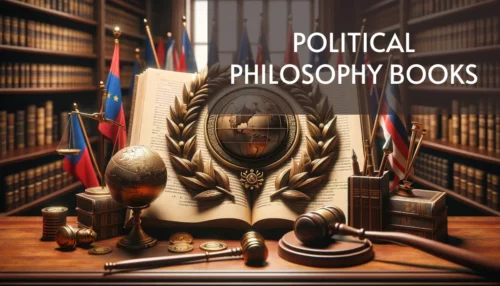
Political Philosophy studies in a rational and reflective way political questions, such as power, the State, government, the common good, authority, rights, justice, forms of government and laws, in terms of their origin, essence, limits, legitimacy, nature, necessity and scope.
There are great political philosophers who have marked history. Confucius was one of the first thinkers who related ethical action to the practice of politics. Thomas Aquinas also reflected on how human beings can conduct righteous government through the practice of the virtues. Niccolò Machiavelli was an expert in the study of power and law.
The field of knowledge of political philosophy also includes the study of some questions of the philosophy of social sciences, such as the theory of decision and rational action, the theory of systems, the critical theory of society and others.
17) Positivism Books

Positivism books are an excellent way to understand this philosophical current that originated in the 19th century. It is characterized by its focus on science and empirical observation and its rejection of metaphysics and philosophical speculation.
Although Positivism has been criticized for its limited focus on understanding the world, its influence on philosophy and science remains relevant today.
If you are interested in understanding Positivism, we provide you with books in PDF format that can help you delve deeper into this philosophical current and better understand its fundamental ideas.
18) Rationalism Books
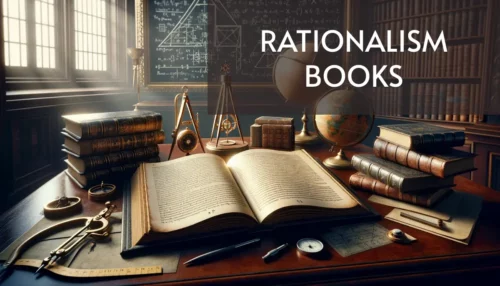
We have elaborated a selection of books that treat one of the most determining philosophical currents of history, we invite you to read our free books of rationalism in PDF format.
As one of the main characteristics of rationalism is to maintain thought and reason as the origin of all human knowledge.
In this series of books that we present to you below, you will be able to learn all the aspects that this current covers, how it influenced humanity, and other points of great interest.


